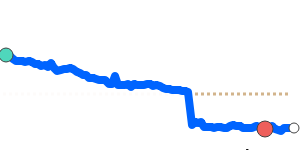USD/TRY Outlook:
The USD/TRY rate is likely to increase as it is trading significantly above its recent average and is at 90-day highs. This strength is primarily supported by robust US jobs data.
Key drivers:
• Rate gap: The Federal Reserve's firm stance on interest rates contrasts with Turkey's recent policy rate cut, widening the gap between USD and TRY yields.
• Risk/commodities: Crude oil prices have remained volatile but are generally low, which often pressures emerging market currencies like TRY.
• One macro factor: Turkey’s recent downgrade by Fitch has raised concerns about the sustainability of its economic recovery amid inflation forecasts.
Range:
Expect USD/TRY to hold near this elevated level within its recent trading range.
What could change it:
• Upside risk: A stronger-than-anticipated US economic report could push the USD even higher.
• Downside risk: Any significant easing of geopolitical tensions could reduce demand for the USD as a safe haven.

